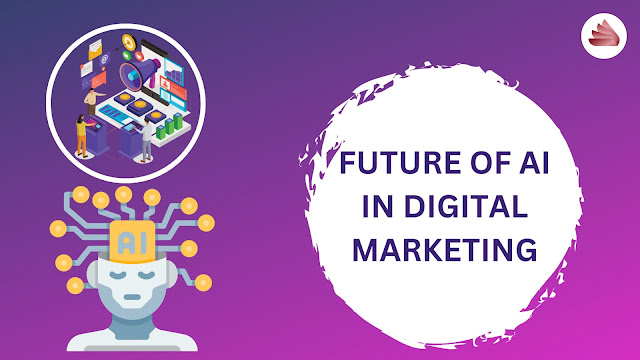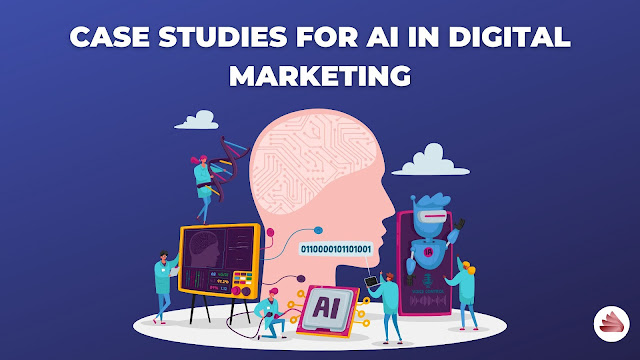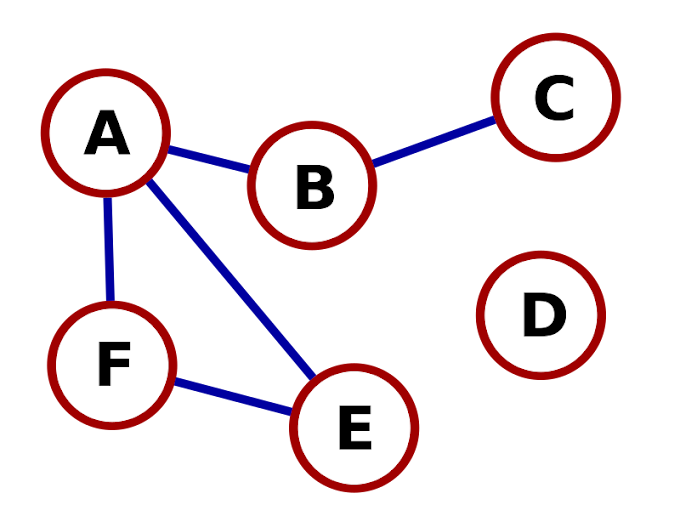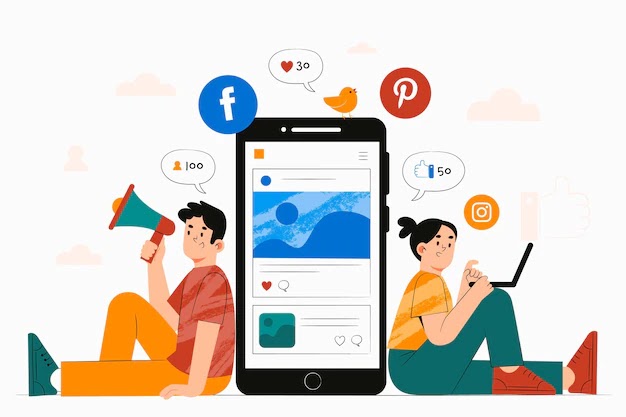Artificial Intelligence (AI) revolutionizes businesses' operations and has significantly impacted digital marketing. AI can help digital marketers automate their processes and analyze large data sets to make more informed decisions. In this article, we'll explore the role of AI in digital marketing and how it is transforming the industry.
What is Artificial Intelligence?
Artificial Intelligence is a field of computer science that aims to create intelligent machines that can perform tasks that normally require human intelligence, such as learning, reasoning, and problem-solving.
AI technologies are designed to process and analyze large amounts of data, identify patterns and insights, and make predictions based on that data.
AI has several applications in digital marketing, including customer service, advertising, personalization, and analytics.
AI in Customer Service
Customer service is a critical component of any business, and AI can help improve customer satisfaction and reduce the workload on human customer service representatives.
AI-powered chatbots and virtual assistants can provide customers with 24/7 support and assistance. They can handle various tasks, such as answering frequently asked questions, resolving simple issues, and providing personalized recommendations based on a customer's history and preferences.
AI in Advertising
AI is also transforming the way digital advertising works. AI-powered advertising platforms can analyze large amounts of data to identify target audiences, optimize ad placements, and personalize ads based on a customer's interests and behavior. AI can also help marketers predict which ads are likely to be successful and adjust their campaigns in real-time to optimize their performance.
AI in Personalization
Personalization is an important aspect of digital marketing, and AI can help marketers deliver more personalized experiences to their customers. By analyzing customer data and behavior, AI can recommend products and services relevant to customers' interests, locations, and browsing history. AI can also help personalize the content on a website, email campaigns, and social media posts.
AI in Analytics
One of the most significant benefits of AI in digital marketing is its ability to process and analyze large amounts of data quickly and accurately. AI-powered analytics tools can help digital marketers identify patterns and insights in customer data, such as customer behavior, preferences, and purchase history. These insights will help marketers to optimize their marketing strategies and to make data-driven decisions.
Benefits of AI in Digital Marketing

The use of AI in digital marketing offers several benefits, including:
Improved efficiency: AI-powered tools can automate repetitive tasks and processes, freeing up time for marketers to focus on more strategic initiatives.
Enhanced personalization: AI can help to deliver more personalized customer usability by improving customer satisfaction and loyalty.
Better insights: AI-powered analytics tools can help marketers identify patterns and insights in customer data, which can inform their marketing strategies and improve their ROI.
Real-time optimization: AI can help marketers optimize their campaigns in real-time, adjusting their strategy based on customer behavior and performance metrics.
Cost-effective: AI-powered tools can reduce the cost of digital marketing by automating tasks and reducing the need for human resources.
Challenges and Limitations of AI in Digital Marketing
While AI offers numerous benefits for digital marketers, it also presents challenges and limitations. One of the biggest challenges of AI in digital marketing is the need for high-quality data. AI algorithms require a lot of data to learn and improve, and if the data is of poor quality, the algorithms may not be effective.
Additionally, there is always a risk that AI algorithms may make biased or inaccurate predictions, which can negatively impact the performance of digital marketing campaigns.
Another challenge of AI in digital marketing is the need for skilled personnel who can manage and interpret the data generated by AI tools. Many businesses may not have the expertise or resources to utilize AI effectively in their marketing efforts, which can limit the potential benefits of the technology.
Moreover, AI technology can be expensive to implement and maintain, which can be a significant barrier to entry for smaller businesses.
The Future of AI in Digital Marketing

As AI technologies continue to evolve and improve, we can expect to see even more innovative applications of AI in digital marketing.
In the future, we may see AI-powered tools that can analyze customer sentiment in real-time, predict customer behavior more accurately, and even generate personalized content for individual customers.
Furthermore, integrating AI and other emerging technologies, such as virtual reality and blockchain, could open up new opportunities for digital marketing that we cannot even imagine today.
Tips for Implementing AI in Digital Marketing
If you're considering implementing AI in your digital marketing strategy, here are some tips to help you get started:
Define your goals: Before using AI in your marketing efforts, it's important to define your goals and objectives. What do you want to achieve with AI? What specific problems do you want to solve? Understanding your goals will help you select the right AI tools and approach.
Identify the right data sources: AI algorithms require a lot of data to learn and improve. It's important to identify the right data sources and ensure that the data is high quality and relevant to your goals.
Invest in the right tools: There are a variety of AI-powered tools available for digital marketing, such as chatbots, analytics platforms, and advertising platforms. Investing in the tools that align with your goals will help you achieve the results you're looking for is important.
Hire the right talent: Implementing AI in your marketing efforts requires skilled personnel who can manage and interpret the data generated by AI tools. Hiring the right talent or partnering with a vendor who can provide the necessary expertise is important.
Monitor performance: As with any marketing strategy, it's important to monitor the performance of your AI-powered campaigns and make adjustments as necessary. Continuously evaluating the performance of your AI tools can help you optimize your marketing efforts and achieve better results.
Examples of AI in Digital Marketing
To better understand how AI transforms digital marketing, let's look at some examples of AI-powered tools and applications.
Chatbots: Chatbots are becoming increasingly popular in digital marketing. They use AI algorithms to simulate human conversations and can provide customers with quick and personalized support. Chatbots can answer frequently asked questions, recommend products, and help customers navigate the sales process.
Predictive analytics: Predictive analytics uses AI algorithms to analyze historical data and predict future customer behavior, which can help businesses identify potential growth opportunities, optimize marketing campaigns, and make more informed business decisions.
Personalization: AI can deliver personalized content and recommendations to customers based on their preferences and behaviors, improving customer engagement and loyalty and ultimately driving more sales.
Image and voice recognition: Image and voice recognition technologies use AI algorithms to analyze and understand visual and auditory data. To use it in digital marketing to identify brand logos and products in social media images or to create personalized voice-based customer experiences.
Programmatic advertising: Programmatic advertising uses AI algorithms to automate the buying and selling of online advertising inventory. This results in businesses reaching their target audiences more efficiently and effectively and can be used to optimize ad spending and improve ROI.
These are just a few examples of how AI is transforming digital marketing. As AI technologies continue to evolve, we can expect to see even more innovative applications in the years to come.
As businesses continue to adopt AI in their marketing strategies, it's important to consider the ethical implications of using these technologies. For example, using personal data in AI algorithms raises concerns about data privacy and the potential for discrimination.
It's important for businesses to use AI ethically and responsibly and to ensure that their use of AI aligns with legal and ethical standards.
In addition, it's important to recognize the limitations of AI in digital marketing. While AI can automate tasks and improve efficiency, it cannot replace human creativity and intuition. Developing and executing the best digital marketing strategies will still require a human touch.
The continued development of machine learning algorithms and deep learning neural networks can enable even more sophisticated and accurate predictive analytics to better understand and anticipate customer behavior, enabling them to tailor their marketing strategies more precisely and effectively.
As these technologies continue to evolve, it's clear that AI will play an increasingly important role in digital marketing. By embracing these technologies and staying ahead of the curve, businesses can gain a competitive advantage and succeed in the ever-changing digital landscape.
Case Studies of Successful Implementations of AI in Digital Marketing

Digital marketing is rapidly evolving, and artificial intelligence in digital marketing (AI) plays an increasingly important role in helping businesses stay ahead of the curve. Businesses can automate tasks, gain better insights, and improve personalization by leveraging AI technologies like machine learning, natural language processing, and computer vision. Here, we will explore some case studies of successful implementations of AI in digital marketing, highlighting the impact on ROI and customer engagement.
Sephora
Sephora is a leading beauty retailer that has embraced AI in its digital marketing efforts. The company uses a chatbot on its website and mobile app that leverages natural language processing to provide personalized recommendations to customers.
The chatbot asks customers about their preferences and then suggests products based on their responses. In addition to the chatbot, Sephora uses machine learning algorithms to analyze customer data and make personalized product recommendations via email and push notifications. As a result of these efforts, Sephora has seen a 30% increase in mobile app downloads and a 65% increase in customer retention.
Domino's Pizza
Domino's Pizza is another company that has successfully implemented AI in its digital marketing. The company has developed an AI-powered chatbot that enables customers to order Pizza using natural language processing.
The chatbot is available on multiple platforms, including Facebook Messenger, Alexa, and Google Assistant. Customers can order Pizza by simply telling the chatbot what they want, and the chatbot takes care of the rest.
In addition to the chatbot, Domino's uses machine learning to analyze customer data and make personalized product recommendations. As a result of these efforts, the company has seen a 128% increase in online orders.
Spotify
Spotify is a music streaming service that uses AI to improve the user experience and increase engagement. The company uses machine learning algorithms to analyze user data and make personalized recommendations for music playlists and podcasts. This approach has helped Spotify increase user engagement and retention. Additionally, Spotify uses natural language processing to enable users to search for music and podcasts using voice commands. As a result of these efforts, Spotify has seen a 59% increase in user engagement and a 10% increase in monthly active users.
Coca-Cola
Coca-Cola is a global beverage company that has embraced AI in its digital marketing efforts. The company uses machine learning to analyze customer data and make personalized product recommendations. Additionally, Coca-Cola uses computer vision technology to analyze images on social media and identify when its products are featured, which makes it easy for the company to identify and engage with influencers promoting its products. As a result of these efforts, Coca-Cola has seen a 4.4% increase in sales.
Amazon
Amazon is an e-commerce giant at the forefront of using AI in digital marketing. The company uses machine learning to analyze customer data and make personalized product recommendations. Additionally, Amazon uses natural language processing to enable customers to search for products using voice commands. The company has also developed an AI-powered virtual assistant, Alexa, which enables customers to order products using voice commands. As a result of these efforts, Amazon has seen a 29% increase in sales.
The Potential Impact of AI on the Job Market in Digital Marketing

Artificial intelligence (AI) is transforming businesses' operations across all industries, including digital marketing. AI has the potential to automate many tasks, improve efficiency, and provide valuable insights. However, as AI becomes more prevalent in digital marketing, it may also impact the job market. In this article, we will explore the potential impact of AI on the job market in digital marketing.
Automation of routine tasks
One of the most significant impacts of AI on the job market in digital marketing is the automation of routine tasks. As AI technologies like machine learning and natural language processing continue to advance, they can automate data entry, keyword research, and ad optimization tasks, which could reduce the number of jobs in these areas. However, it's important to note that automation may create new job opportunities. For example, businesses may need employees to manage and maintain the AI technologies that automate routine tasks.
Increased need for technical expertise
As AI becomes more prevalent in digital marketing, there will be an increased need for technical expertise. Businesses will need employees with knowledge and skills in data science, programming, and machine learning that create a shift in the job market, with a higher demand for individuals with technical backgrounds.
New job roles and opportunities
AI is also creating new job roles and opportunities in digital marketing. For example, businesses may need employees to train and manage AI algorithms. They may also need individuals to analyze and interpret the data generated by AI technologies. Additionally, as AI improves personalization and customer experiences, businesses may need employees who can provide creative and strategic input for marketing campaigns.
Reskilling and upskilling
As AI continues to impact the job market in digital marketing, reskilling, and upskilling will become more important than ever. Employees willing to learn new skills and technologies will be more valuable to businesses than those resistant to change. Businesses may need to invest in training programs and resources to help employees acquire the skills to work alongside AI technologies.
Ethical considerations
As AI becomes more prevalent in digital marketing, there are also ethical considerations to consider. Businesses must consider the potential impact of AI on their employees and the broader job market. They must ensure that the implementation of AI does not lead to job loss or displacement and that the benefits of AI are shared among all employees.
Conclusion
AI is transforming the digital marketing industry, and its impact will only continue to grow in the years to come. By automating tasks, providing better insights, and enabling real-time optimization, AI is helping digital marketers improve their ROI and stay ahead of the competition.
However, it's important to recognize the challenges and limitations of AI in digital marketing, such as the need for high-quality data and skilled personnel. To successfully implement AI in your marketing efforts, it's important to define your goals, identify the right data sources, invest in the right tools, hire the right talent, and monitor performance.
AI presents exciting opportunities for businesses to improve their marketing strategies and achieve better results. By embracing this technology, businesses can stay ahead of the competition and thrive in the fast-paced digital landscape.





0 Comments